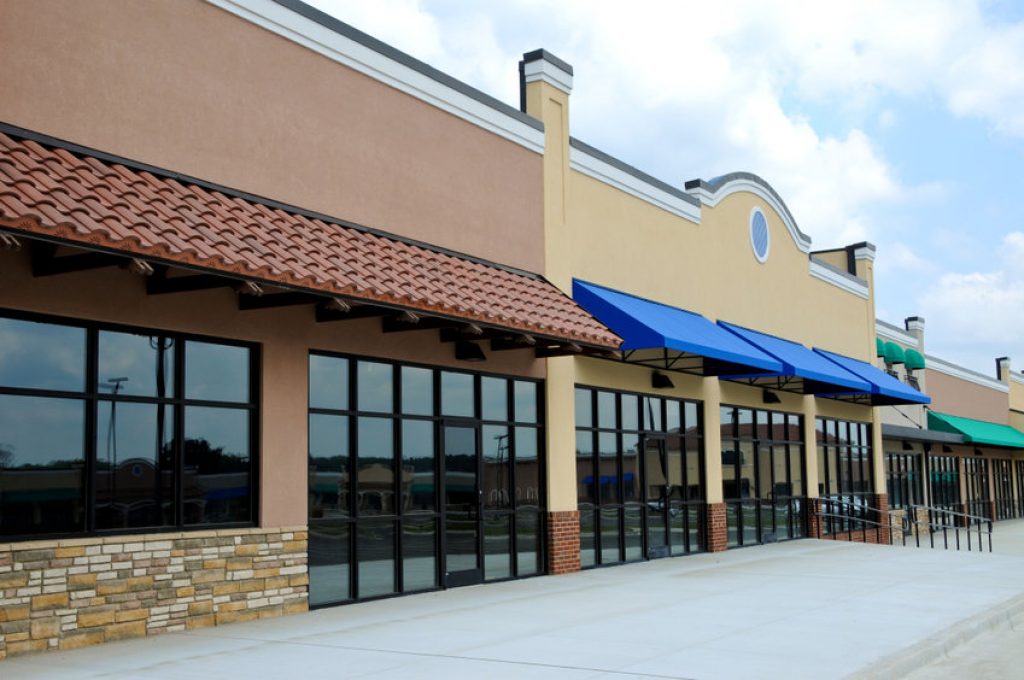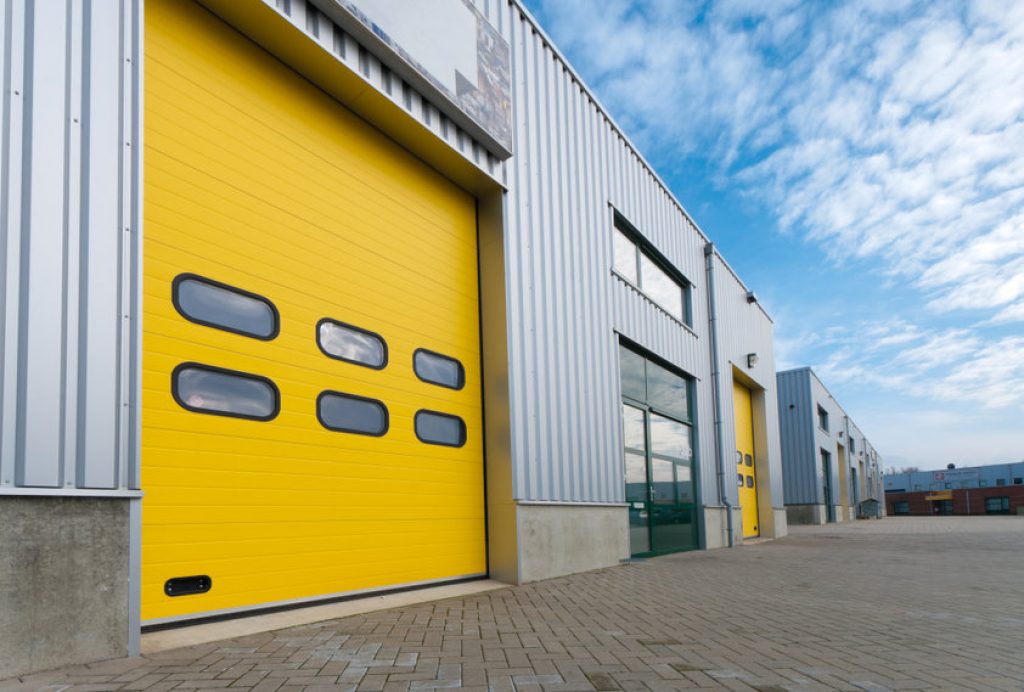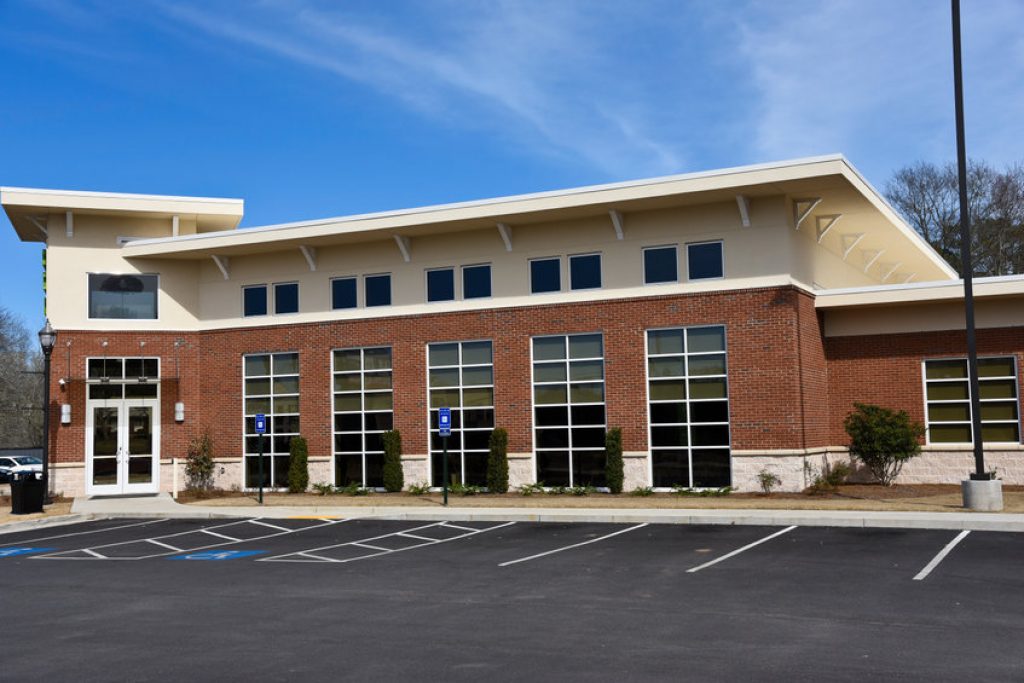What is commercial property insurance, and why does my business need it?
Commercial Property Insurance is a type of property insurance that covers the risks of a commercial property owned by a business and used for commercial activity. Commercial properties are those that are used to make money, such as stores, restaurants, and office buildings.
Need
Commercial Property Insurance ?
Get Your Free Quote

The several types of real estate property have different rights and obligations attached to them.
Commercial property insurance covers damage to or destruction of the building itself and its contents from natural disasters or other perils such as fire, windstorm, theft, vandalism, etc.
Why Should You Take Out Commercial Property Insurance?
Commercial property insurance is a type of insurance that covers commercial real estate, such as office buildings, factories and warehouses. Commercial property insurance can be used to protect the value of the building itself and the contents within it.
There are several reasons why you should spend on commercial property insurance. One of the most important reasons is that it protects your investment. If you have a business, you want to make sure your building is covered in case anything happens to it.
Another important reason to purchase commercial property insurance is that it offers peace of mind and enables you to focus on your business rather than the insurance itself.
Commercial property insurance is also vital for businesses that want to be less of a target for arson, vandalism, or other threats.
Small Business General Liability Protection:
Get Your Free Quote
Business owners should also consider the cost of their business’s property. Recovering from a loss if there is a fire or flood, insurance will help with the cost of repairs and replacements.
Most businesses may be able to get their insurance company to pay for these expenses quickly and keep their doors open and business flowing.
However, suppose the damage was too severe. In that case, companies may have to start over from scratch and find another location for their business.
Things You Should Know About Commercial Property Insurance

Commercial property insurance policies are designed to protect your business’s assets from damage or loss. It’s just one more layer of protection between your company and any problems that may arise.
There are many different types of commercial property insurance policies available that offer coverage for both your building and its contents. It is essential to be fully informed by the agent, broker or insurance company representative of the limitations on your cover.
You may need to negotiate a “rider” clause or appendage to the policy. Alternatively, you can take out a separate umbrella policy that sits on top of your standard commercial property insurance policy, gives you additional covers for more significant claims, and fills in any gaps that your basic policy may have.
Get Your Business Insurance:
Get Your Free Quote
How Much Does Commercial Property Insurance Cost?
Factors that directly affect the cost of commercial property insurance are highly dependent on specifics, such as:
- The company’s claims history and how much you have claimed in recent years
- How much coverage are you purchasing and what level of deductibles are you choosing to pay
- What type of coverage are you buying and what are your limits
- The nature of the location and its levels of specific risk (earthquakes, floods, fires, theft, vandalism etc.)
- Most important is the replacement value of the building – how much it would cost to rebuild in case of a complete demolition. NOTE: The land value is not insurable.
The cost of commercial property insurance varies depending on the size of the business and the type of property it is insuring. Larger companies have the option of purchasing additional coverage as needed.
Business owners’ policies (BOP) typically cover liability, commercial property damage, product liability, errors and omissions (E&O), directors’ and officers’ liability (D&O), medical payments to employees or their families, and in some cases, general business risks.
Most property policies cover vehicles and equipment inside the premises and personal property, including office furniture and supplies.
Personal items that are not considered part of a company’s operations are typically not covered under these types of policies.
Why do I need commercial property insurance?
Commercial property insurance is one of the primary expenses a small business needs to have in place before they are deemed profitable.
Get Your Business Insurance:
Get Your Free Quote
Insurance is a type of risk management. It is a contract that generally covers events or occurrences that are known and expected, but against which no assured outcome can be specified. To mitigate risk, insurance is purchased.
The terms of the contract usually identify the hazards, events or occurrences that are covered, as well as any exclusions or deductibles that might apply. Examples of types of contracts are:
- Insurance policies
- Contracts of insurance
- Contracts that identify the parties and their respective rights and responsibilities, such as a lease agreement or partnership agreement.
Insurance helps to provide a degree of protection against various risks and the chance that the company might not be able to offer its services if they were ever uninsured.
Small businesses also gain a lot of tax deductions by taking out insurance. Insurance is considered to be a deductible business expense.
What does a commercial policy cover?

Small businesses must be careful with how they protect themselves. If a business doesn’t have enough insurance, it could find itself liable for any tort that occurs on its property. The business purchases the insurance in order to protect themselves from tort liability.
Tort liability is when a person sues a business due to some activities conducted by the company and damages occur.
What are the different types of commercial property insurance?
Commercial property insurance is a type of property insurance that covers losses to commercial buildings and their contents. State laws passed by individual states can regulate property insurance.
In most of these states, the primary regulating agency is the Department of Insurance.
For example, the New York State Department of Financial Services is responsible for regulating property insurance in New York. Some of the most common types of insurance products that New York regulates include policies for cover of office, commercial and manufacturing buildings. This includes:
- coverage for the building or structure itself, as well as personal property inside. It usually does not cover damage to the building’s structure, or loss of use.
- cover for losses due to fire or other damage to a building and its contents. In some cases, it also covers risks such as theft, legal liability, and natural disaster.
- cover for any losses or damage to some or all of your company’s property, depending on the policy. NOTE: Contents insurance is often only available if you have an active policy with a building insurer.
The value of the coverage and the cost varies depending on what type of policy you purchase, who you buy it from, and where your building is located.
How much does commercial property insurance cost?
In the property insurance market, premiums are typically expressed as a “premium per thousand” or “premium per million .” This number indicates the amount to be paid for every $1,000 or $1 million of the value of covered items.
For example, a building valued at $200,000 with a comprehensive coverage rate of $1 would have a premium of $2,000.
The property insurance market is divided into many classes of coverage:
- Property insurance can also be classified as “per occurrence” or “per year.”
- Per occurrence insurance is cheaper because it only pays out when there is a covered loss.
- Per year insurance pays out for the entire 12 months.
Commercial building insurance is typically per occurrence, meaning it only pays out when there is a covered loss.
The benefits of commercial building insurance include:
- They offer a wider range of property coverage options, such as damage from vandalism or theft.
- They often have higher limits for coverage than homeowners’ insurance policies.
- Losses are generally covered for the company’s property, such as computers, furniture, workers’ clothing and electronics, but not for inventory or equipment used directly in business, such as workshop equipment.
What factors affect the costs of your insurance policy:
- The replacement cost of the building structures
- The size and location of your buildings
- The building’s age and condition
- The number of employees in the buildings
- Value of supplies and equipment in the buildings
- The volume of visitors to your buildings
- The amount of time employees spend in your buildings
- Whether or not you have an existing lease agreement in place with the landlord/property owner
- Whether or not you have a mortgage on your building
- Your desired coverage amount and agreed deductibles
- The level of risk your company faces
- Whether or not you are a sole proprietor and do not have employees
In the following table, we are showing a very general guide for what will influence the cost of your insurance policies, depending on the factors we have outlined in the list above.
| Type | Main styles of business | Main risks* |
| Shopping centers | Strip centers
Restaurants Soft goods stores Apparel stores Food courts General merchandise stores |
Fire-especially in southern states with hot & dry summers (California; Arizona; New Mexico; Texas; Oklahoma; Arkansas; Nevada)
Hail damage & weather events-especially in northern states with harsh winters (Alaska; Washington; Idaho; Montana; Dakotas; Minnesota; Wyoming; Nebraska; Iowa; Kansas; Colorado; Utah) Flooding-in states with large rivers (locations bordering Missouri, Mississippi, Yukon, Rio Grande, Arkansas & Colorado Rivers) Vandalism-in areas of poor cities with high population density and low income ( “top 10 poorest” in the USA are Louisville, KY; Boston, MA; Indianapolis, IN; El Paso, TX; Fresno, CA; Baltimore, MD; Tucson, AZ; Memphis, TN; Philadelphia, PA; Milwaukee, WI; Detroit, MI) |
| Office property | Urban hi-rise
Suburban |
Earthquakes-highest risk areas are California & Coastal Pacific Northwest; Missouri; South Carolina; Hawaii; Alaska
Fire Flooding |
| Amenities | Gyms
Pools Healthcare facilities |
Vandalism
Fire Hail damage & weather events Flooding |
| Manufacturing | Factories
Depots |
Fire
Hail damage & weather events Flooding |
| Transportation | Marshaling yards
Gas stations Auto showrooms Repair shops |
Hail damage & weather events
Flooding Fire |
| Accommodation | Hotels
Motels Resorts Rented accommodation |
Vandalism
Hail damage & weather events Flooding Fire |
| Street front | Restaurants
Soft goods stores Apparel stores General merchandise stores |
Hail damage & weather events
Flooding Fire Vandalism |
*Ranked in general order of likelihood

FAQ
How does an insurance company define the main terms of a commercial insurance policy?
A “property” is a building or part of a building. A “business” is any legal organization that makes money from providing goods or services to customers.
An insurance policy is something that protects over a period of time. A “policyholder” is the person who has purchased insurance or who pays into the policy’s premium.
The person who buys a policy and collects its benefits is called the “beneficiary.” An “insurance agent” or “insurance broker” is someone who sells policies for a company in return for a commission or fee.
An “insurance representative” is someone employed by the insurance company to sell its policies.
What is covered under a property policy?
Commercial space definition refers to the area of space that is used for business purposes or is held by a commercial entity.
The commercial office property is a type of real estate that is used for commercial activities. Commercial office property is often used for showroom spaces or as retail space, while industrial and warehouse properties are used for manufacturing and distribution purposes.
Commercial property insurance is typically purchased by the owner of a building, rather than the tenant.
It covers various risks such as fire damage, loss of use, business interruption, damage from construction work, water damage, theft of company assets and pollution of the building and surrounding properties.
Is There a Need for Specific Property Insurance in Certain Businesses?
Some kinds of businesses have specific risks that may not be covered in a standard commercial property insurance policy. Some examples are:
- Home-based businesses – private building insurance may not cover any part of your home which you operate a business from. Worse than that, say you have a small metal workshop running out of your carport, and it starts a fire that destroys your whole home. The insurance company probably would void your cover because the building was deliberately put at risk by being converted into a business place. To protect yourself, you need either to get a “rider” clause on your homeowners policy that says the insurance company extends the cover to include the business activity, or take out an umbrella policy that protects the whole building.
- Apartment owners – when you own one or more apartments or houses as a business, collecting rental income, then regular householders insurance is not an option. As well, there needs to be cover for third-party activity like vandalism and deliberate damage that typical policies would not cover.
What causes most claims for property damage?
Most years, fires and natural disasters cause the great majority of claims for property damage, amounting to inflicted losses of up to $25.5 billion in 2019.
The most common causes are severe thunderstorms, winter storms and cold waves, wildfires, heat waves, drought, floods and flash floods, earthquakes and other geophysical events.
Severe thunderstorms accounted for more than three-quarters of the claims, and cyclones and winter storms accounted for ten percent of the total.
Do commercial property insurance policies cover natural disasters?
Commercial property insurance policies usually exclude both earthquakes and floods from their cover.
Earthquake cover needs to be taken out with companies providing earthquake-specific policies. If your business property qualifies, flood protection is available through the FEMA National Flood Insurance Program (NFIP).
Why do businesses not claim for property damage?
In the most significant number of cases, the businesses were underinsured or were not insured at all. Sometimes, the cost of repairs is less than the agreed deductible so it comes out as an ordinary business expense.
More often, businesses are afraid that filing a claim could result in higher premiums in future, not only in commercial property rates but on all other insurances, because it reflects on the company’s claims history.
As well, leaving the damage unrepaired while waiting for the insurance company to assess and agree to the claim may take months, and in the meantime, the business can’t go on as usual.

